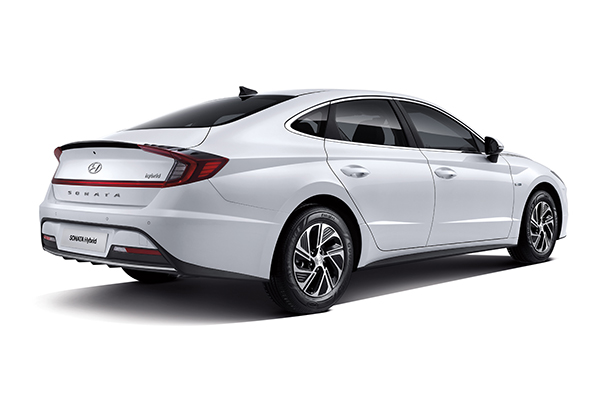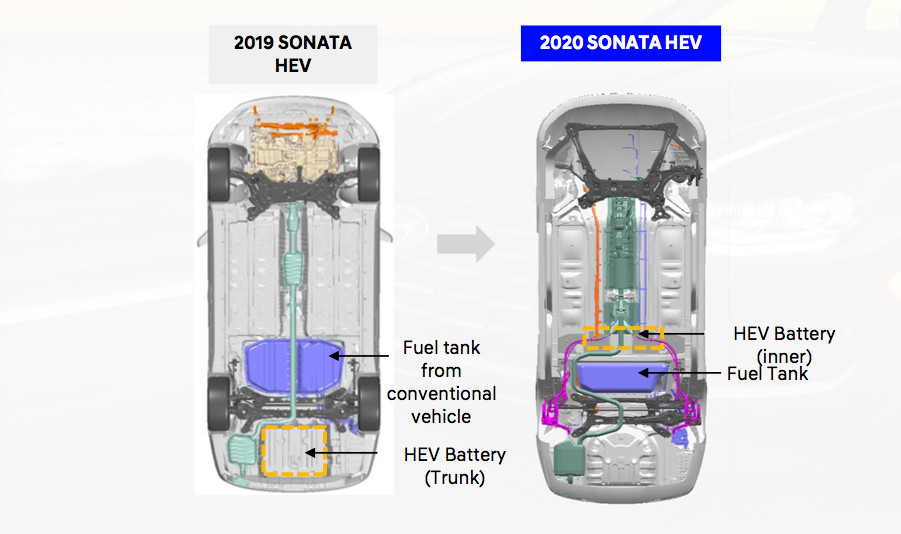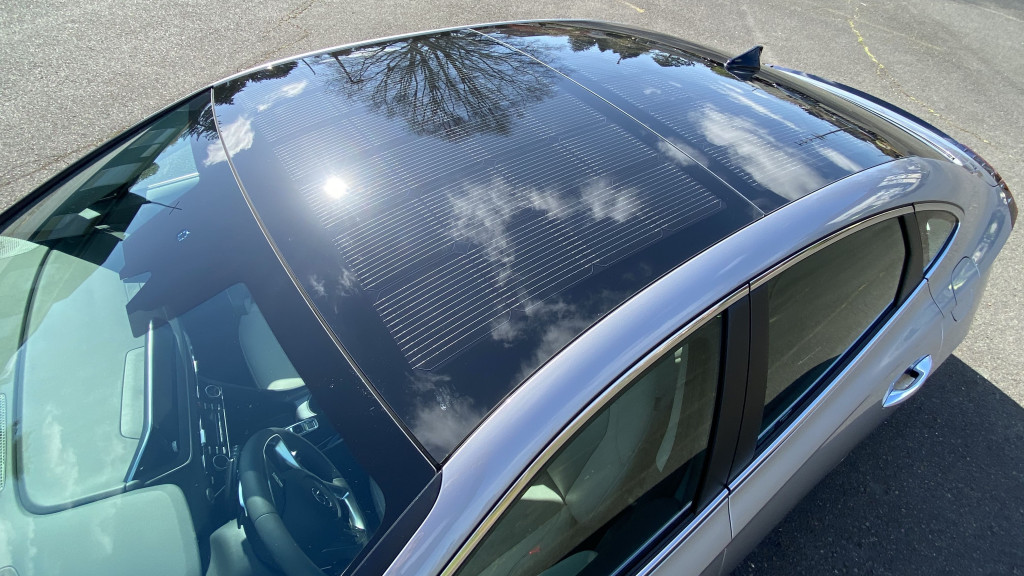Hyundai’s electric vehicles, the Ioniq Electric and Kona Electric, are already established as among the top few most efficient EVs. And Hyundai's hybrid models like the 2020 Hyundai Sonata Hybrid that's reaching dealerships soon, with an EPA combined rating of up to 52 mpg, are right up there on the leaderboard as well.
The automaker's philosophy doesn't distill down to a certain "secret sauce" approach to getting such great efficiency returns, more a bit-by-bit approach. One such example is Hyundai’s work in making the most out of the least battery weight—whether that relates to EVs or hybrids. Its latest hybrid, the 2020 Hyundai Sonata Hybrid, comes with some innovative battery packaging that gets rid of the old 28-pound, 12-volt lead-acid accessory battery that was used up until this year.

2020 Hyundai Sonata Hybrid
The 2020 Sonata Hybrid follows the lead of the Ioniq hybrid (and closely related Kia Niro hybrid) in adopting an arrangement that essentially builds the accessory battery onto the hybrid system battery. The added module is a continuation of the same form factor and intended to last the life of the vehicle.
To think about the packaging of Hyundai’s new-generation hybrid accessory battery, at the presentation of the Ioniq hybrid a few years ago one engineer compared it to the partition of a hard drive dedicated to a different task.
It’s a leap ahead for the sake of packaging, and weight savings, as well as periodic checks for terminal corrosion and all the cautions associated with swapping lead-acid batteries every few years. Glass-mat batteries are a type of lead-acid battery, and while lighter and safer, they still take up about as much space.
Although the accessory/starter battery “partition” is adjacent to the main 1.62-kwh hybrid battery, they’re fully independent. If the car’s been parked for a long time and you realize that the accessory battery is dead, you can simply press the “12V Batt Reset” button, which gives a jumper-cable-like boost of current to the smaller battery, which is almost certainly not dead as it’s reserved for the powertrain.
With the introduction of the 2020 Sonata Hybrid, all U.S. Hyundai hybrids now include the lithium-ion accessory system, according to Jerome Gregeois, senior manager for Powertrain and Eco Technologies.
With that claim, it seems like a fair assumption to make that the technology will also carry into the 2021 Hyundai Elantra Hybrid that's due in late 2020.

2019 Hyundai Sonata Hybrid vs. 2020 Hyundai Sonata Hybrid - battery placement
In the Sonata Hybrid, the high-voltage battery and accessory battery are in a new location just ahead of the fuel tank and under the rear seat cushion. The previous Sonata Hybrid’s main battery had been under the cargo area and a conventional 12V accessory battery was stashed in a compartment on the side of the cargo area.
The new arrangement is likely convenient for the new Solar Roof System that’s included in the 2020 Sonata Hybrid Limited and can charge either of the batteries.

Solar Roof System in 2020 Hyundai Sonata Hybrid - Portland OR, April 2020
This hybrid battery system is not to be confused with that of Hyundai’s electric models, the Kona Electric and Ioniq Electric. Those EVs still do have a larger-capacity lead-acid battery so that various pre-conditioning features might be powered.
There, a system called Auxiliary Battery Saver (explained in the video below) gives the driver the option of whether or not to automatically charge up a low 12-volt battery from the main traction battery even when the car is turned off. If the feature is disabled, the press of a menu button brings the accessory battery back up to its usable range before setting out on the trip.
Ultimately such a logic allows Hyundai to use a smaller, lighter accessory battery than they might otherwise have without the menu option.
Although some might question the small gains, the idea of why we still need a separate ecosystem of 12-volt accessories and components might still be the bigger question—and ultimately the bigger hurdle for the industry to handle. For now we like the thinking that’s going into all these Hyundai electrified vehicles.
